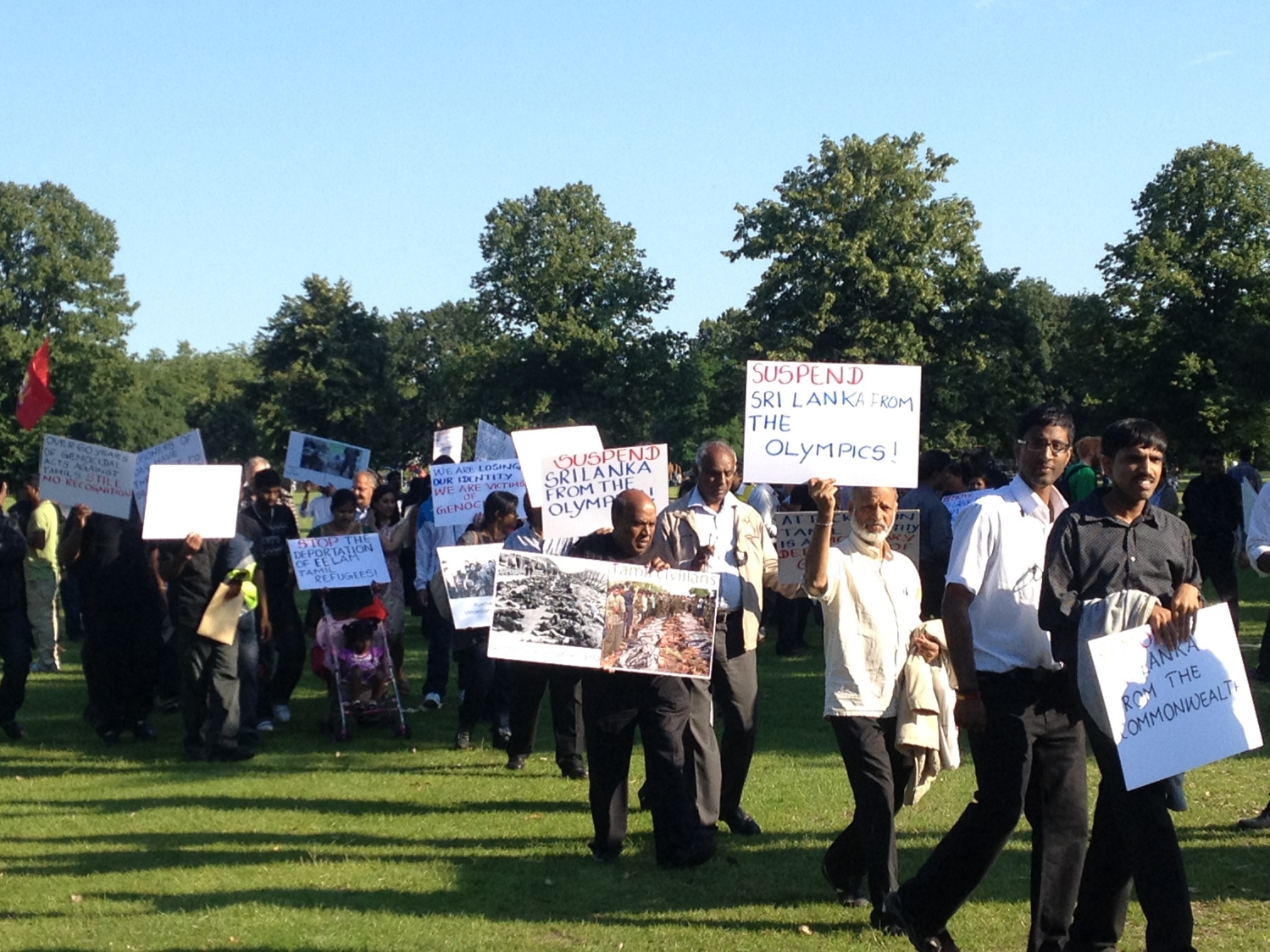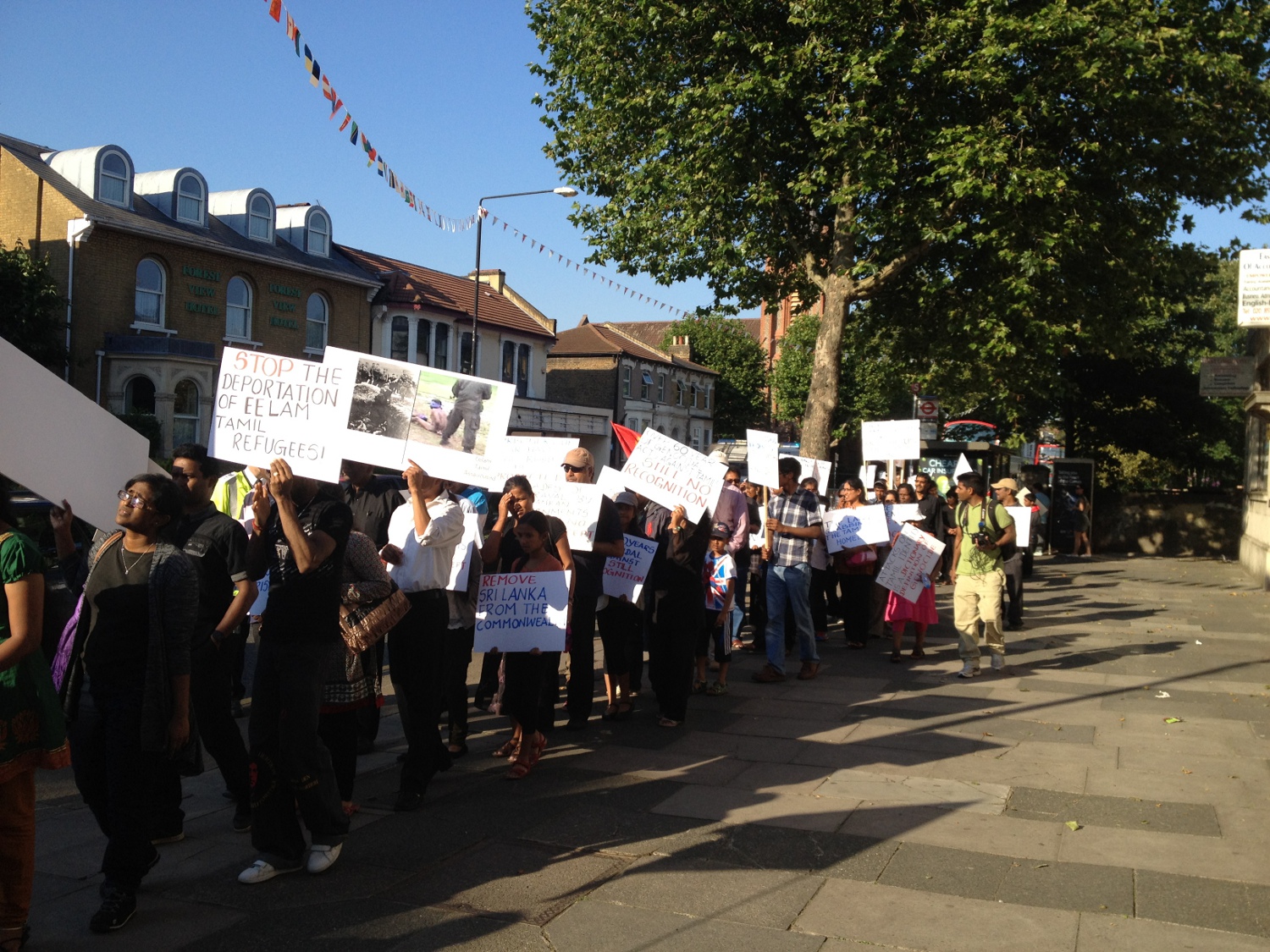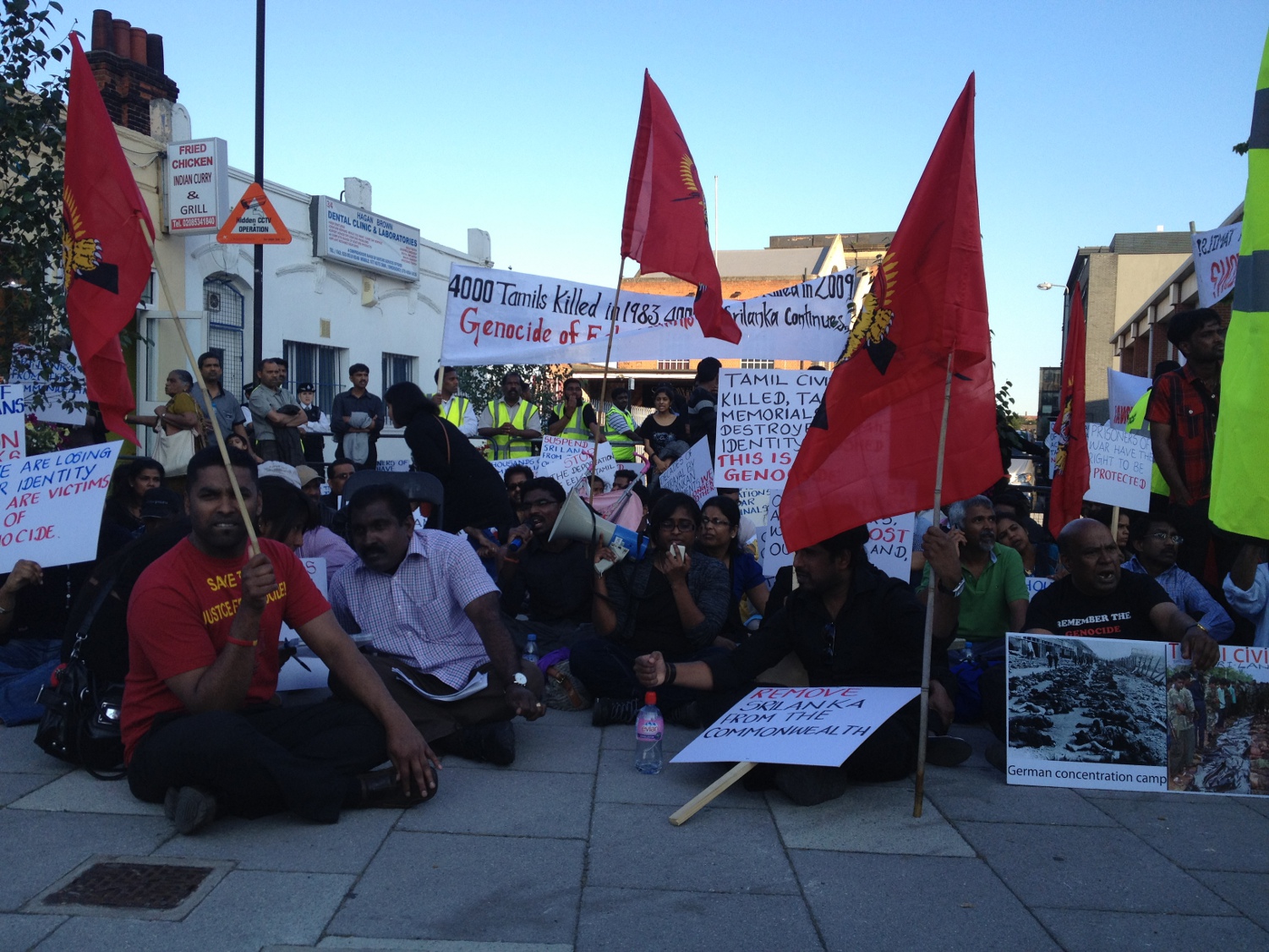Published 23:15 BST
Marching in Stratford, by the site of the London 2012 Olympics, London Tamils remembered the events of Black July 1983 and protested against Sri Lanka's inclusion in the Olympics on Sunday.
The protest also marks the beginning of a 21-day hunger strike by activist, Gobi Sivanthan, by Stratford High Street station.
The protesters were also joined by Akif R. Wan of the Kurdistan National Congress and Dr Andrew Higginbottom a lecturer at Kingston University. Speaking to Tamil Guardian, Wan said, "It [Sri Lanka] should not be taking part until it improves its human rights record".
Event organisers, the Tamil Coordinating Committee (TCC), are to submit a petition asking the International Olympic Committee to suspend Sri Lanka from the Olympics.
"Sri Lanka's participation in the Olympics, which gives legitimacy to a state engaged in the crime of genocide, is a political abuse of sport and is an infringement of the Olympic Charter," read the petition.
Organisers warned of a further protest on Friday 27th July, the day of the Opening Ceremony.
Known for his “Walk for Justice” from London to Geneva, the hunger Sivanthan pledged a hunger-strike vigil until the 12th August, in remembrance of Black July and to protest against Sri Lanka’s participation in the 2012 Olympics, land-grabbing in the North and the deportation of Tamil asylum seekers. Sivanthan called for an independent war crimes investigation and the release all Tamil prisoners of war detained without charge.
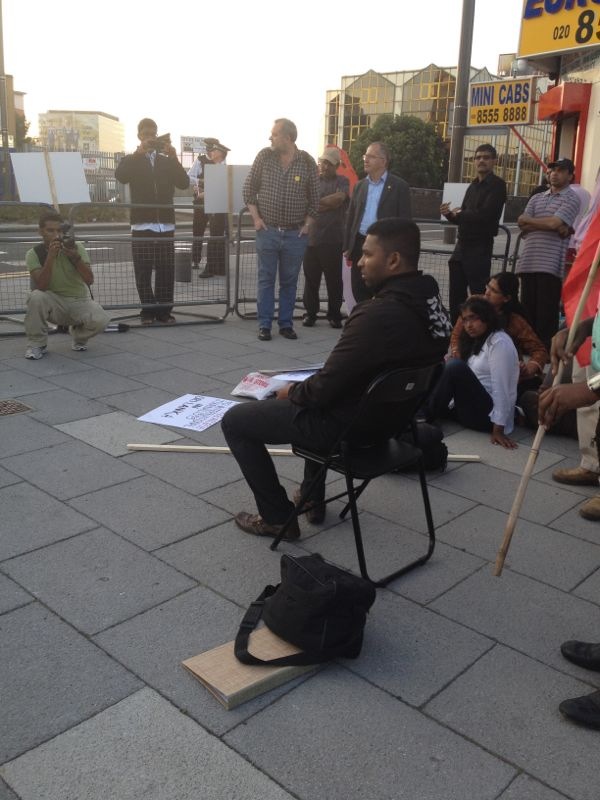 |
|
Protester begun his hunger strike at 20:20 (BST)
|
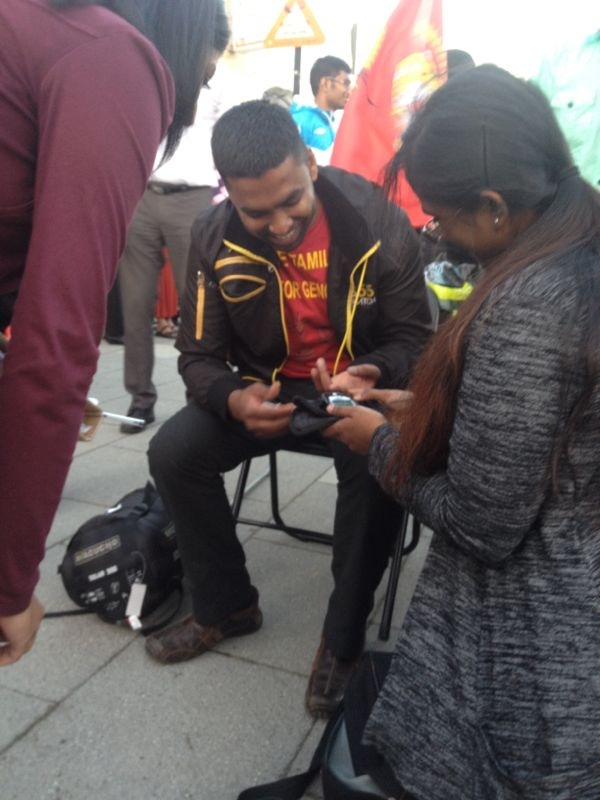 |
|
Tamil doctors monitor his health.
|
Follow TG on Twitter for live updates

